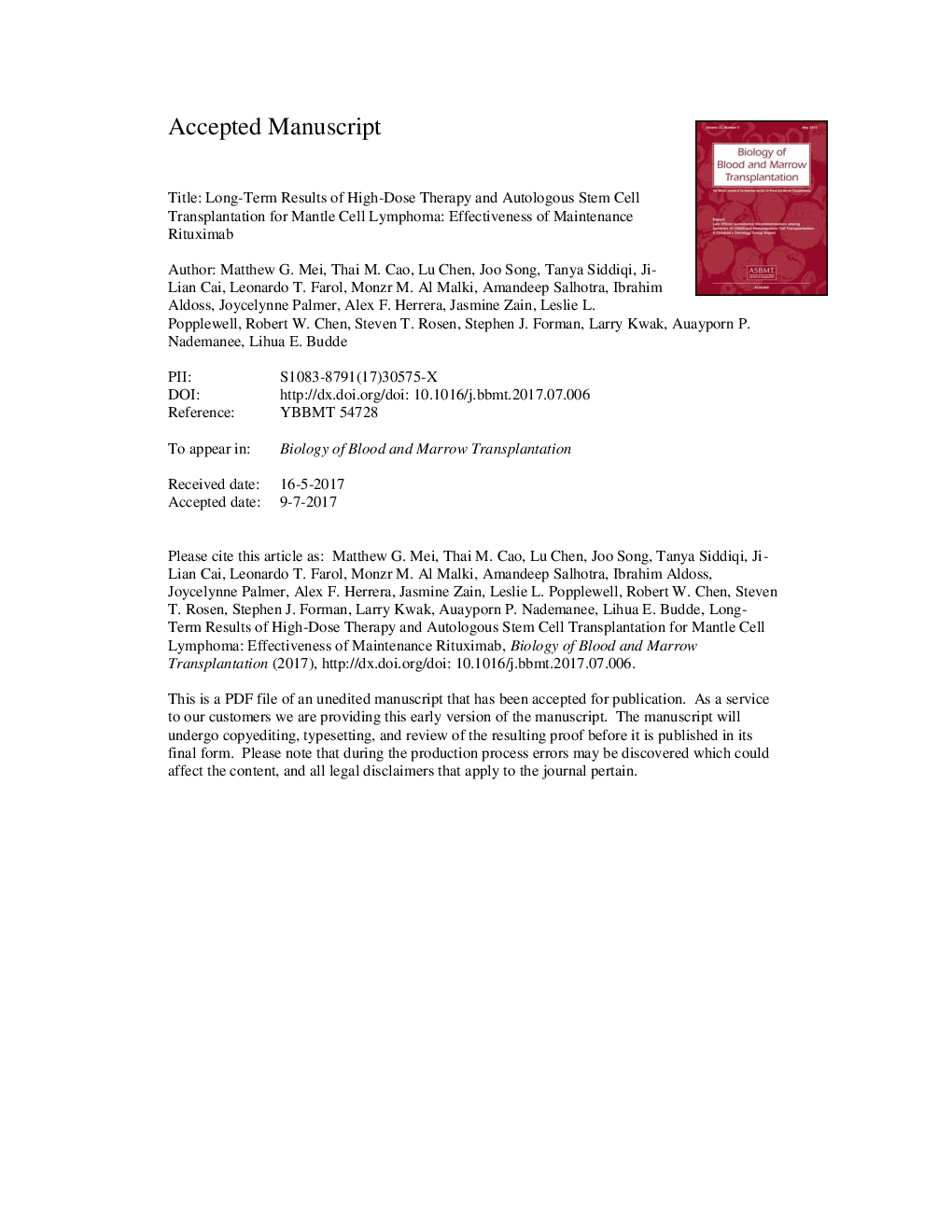| Article ID | Journal | Published Year | Pages | File Type |
|---|---|---|---|---|
| 8430800 | Biology of Blood and Marrow Transplantation | 2017 | 36 Pages |
Abstract
High-dose therapy followed by autologous stem cell transplantation (ASCT) can improve outcomes for mantle cell lymphoma (MCL) but is associated with a high incidence of relapse. A retrospective study of 191 MCL patients who underwent ASCT at City of Hope was performed to examine prognostic factors for outcomes after ASCT. For all patients the 5-year overall survival (OS) was 71% (95% confidence interval [CI], 63% to 77%) and progression-free survival (PFS) was 53% (95% CI, 45% to 60%). The 5-year cumulative incidence of relapse was 41% (95% CI, 34% to 48%) with a continuous pattern of relapse events occurring at a median of 2.1 years (range, .2 to 13.4) after ASCT. In multivariate analysis, post-transplant maintenance rituximab was the factor most significantly associated with both OS (relative risk [RR], .17; 95% CI, .07 to .38) and PFS (RR, .25; 95% CI, .14 to .44). For the subset of patients who had positron emission tomography (PET) data available and were in a PET-negative first complete remission at ASCT (nâ=â105), maintenance rituximab was significantly associated with superior OS (RR, .17; 95% CI, .05 to .59) and PFS (RR, .20; 95% CI, .09 to .43). These results support a benefit with maintenance rituximab for all MCL patients treated with ASCT.
Related Topics
Life Sciences
Biochemistry, Genetics and Molecular Biology
Cancer Research
Authors
Matthew G. Mei, Thai M. Cao, Lu Chen, Joo Y. Song, Tanya Siddiqi, Ji-Lian Cai, Leonardo T. Farol, Monzr M. Al Malki, Amandeep Salhotra, Ibrahim Aldoss, Joycelynne Palmer, Alex F. Herrera, Jasmine Zain, Leslie L. Popplewell, Robert W. Chen,
